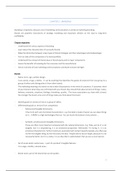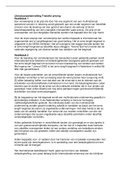Resume
Summary chapter 2 marketing communications
- Établissement
- Universiteit Gent (UGent)
Summary study book Marketing Communications of Prof Patrick de Pelsmacker, Prof Maggie Geuens (H2) - ISBN: 9781292135809, Edition: 6, Year of publication: - (chapter 2)
[Montrer plus]







